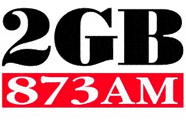How to reset your body clock and get back into routine after the holidays
For many of us, the cost of Christmas is not just measured on our exorbitant credit card statements and expanded waistlines. For many Australians, a few weeks of carefree partying, overseas holidays, impromptu visits, late nights or lazy sleep-ins have also played havoc with the body’s carefully balanced internal clock, and for these people getting back into a healthy sleep pattern as they return to work or school can be a real challenge.
After an indulgent holiday season many individuals complain of jet-lag-like symptoms. Luckily, just like with jet lag, there are plenty of easy interventions that can help reset the body and re-establish a healthy rhythm.
Sydney’s Cheryl Fingleson, Cheryl The Sleep Coach, offers some great tips on how to get back on a regular sleep schedule after the holidays. “It can take three to four days to set up a good sleep schedule,” said Cheryl “so I advise my clients to be patient and disciplined as they get ready to go back to school or work.” Firstly, its important to use nature’s built in cues. Use natural light in the morning to help you feel more awake. If its practical, outdoor exercise on a sunny morning is an optimum way to get the day started. The same thing applies at night. Fingleson advises prospective sleepers to use the darkness to let the body know that it is time to start relaxing winding down. Avoid artificial lights including computers and phones, and sleep in a dark, cool, quiet room. Secondly it can help to eliminate caffeine after mid-day or any time at night. Avoiding or reducing alcohol intake can also have very beneficial effects. For the first few nights after a holiday it may still be hard to go to sleep and wake up at the optimum times. Fingleson advises her client to focus on setting a regular wakeup time. “People who are tired from an early start will go to bed a little easier that night” she said. She also advises against taking daytime naps. “In the post-holiday adjustment period, taking naps may actually leave you more disoriented,” she said. She advises clients to do their best to stay awake until their normal bedtime. It’s also a good idea to pay attention to your sleep environment. A tidy bedroom is more conducive to relaxation, a bed that has been well-made will be more comfortable, and the lack of piles of laundry or clutter will release your mind from the anxiety of your looming to-do list. Cheryl Fingleson’s final tips to tired clients recovering from the silly season, is to pay attention to healthy and regular meals. “There are many great ways to encourage your body to relax and re-set” she says. “Healthy, regular meals are a great balancer. Other relaxation tools can also include quiet baths, essential oils, massage and reading, especially rejuvenation involves a lot more than just sleep.” However, if clients are having more long-term problems, it’s best not to rely on medication like sleeping pills to return to regular sleep patterns, as there might be other factors in play. If after a week or two of persistent effort you still haven’t reclaimed your healthy sleep cycles, you should consult a doctor.
Cheryl Fingleson advises all her clients to take charge of their wellness and embrace good sleep habits as part of their post-holiday resolutions. By employing just a few of the above techniques, clients will notice a big change in their sleep quality and they should return to regular work and school patterns quite quickly.














